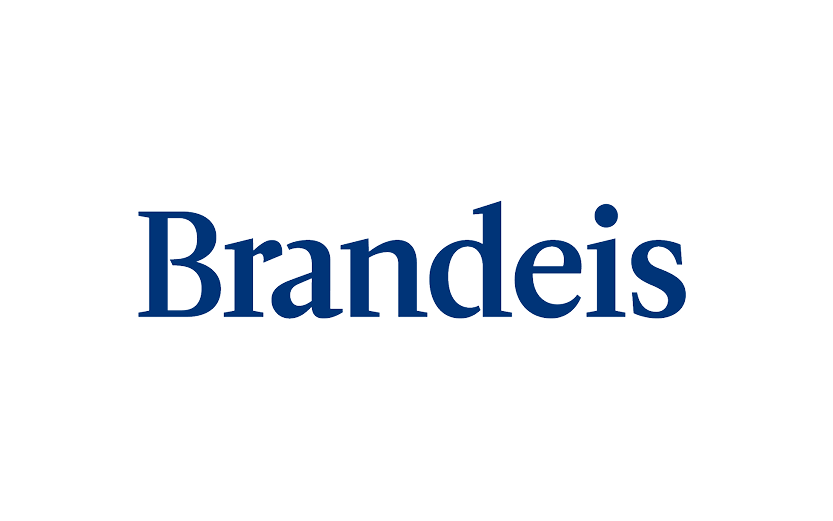
Brandeis University on Overleaf
Overview
Brandeis University is providing Overleaf Professional features for all students, faculty/instructors and staff who would like to use a collaborative, online LaTeX editor for their projects.
Overleaf Professional features include:
Claim your Overleaf professional upgrade by signing up or signing in. You’ll need to link your account to your Brandeis Single Sign On.
Join a community of over 913 authors at Brandeis University
Quick Start
Welcome to the quick start guide to Overleaf. We've put together some useful resources and links in the sections below, and if you have any questions about how to get started please let us know and we'll be happy to help!
For Students
Try out the Overleaf editor with built in tutorial
If you'd like to dive straight into the editor, simply click the button to create a new paper using our quick-start template. A short tutorial will walk you through the main features to quickly get you started.
Browse the Overleaf template gallery
You can find a selection of featured templates, or check out our full template gallery for more ideas and inspiration.
Take our free course to quickly master the LaTeX essentials
If you're new to LaTeX, we've put together a free online course to help you learn the basics. If you have never used LaTeX before, or if it has been a while and you would like a refresher, this is the place to start.
For Researchers
Find a journal template
Through our partnerships within the publishing community, we provide a selection of academic journal templates for articles and papers. These templates automatically format your manuscripts in the style required for submission to that journal.
Edit in Rich Text mode or directly in LaTeX
Overleaf provides an intuitive and easy-to-use manuscript editor (our rich text mode), which is especially useful if you or your co-authors aren't familiar with writing in LaTeX.
If you prefer to edit directly in LaTeX, you can! Overleaf provides a full collaborative online LaTeX editor you can switch to at any time.
Submitting your articles to journals, repositories and more
You can also submit your paper directly to a number of journals and other editorial and review services via the publish menu in the editor. Simply open the publish menu from any document and follow the appropriate 'Submit to ...' link.
For Faculty and Instructors
Introducing Students to LaTeX
Overleaf has several on-demand webinars available that address a variety of beginner, intermediate, and advanced topics.
Getting help for students with accessibility issues
There may be occasions where users are collaborating across different LaTeX platforms due to preference or accessibility reasons. In this case, LaTeX file sharing can be facilitated through the Overleaf Git-Bridge, an Overleaf integration with GitHub.com. See the Brandeis Library guide LaTeX with Overleaf for details on how to collaborate with Overleaf or contact dataservices@brandeis.edu for more information.
Help students understand LaTeX errors
Addressing errors as they happen helps ensure that your LaTeX project continues to compile and look the way it should.
Show your class how to turn on track changes for review
Overleaf offers an impressive collection of collaboration features, and your institutional subscription provides all users with access to the powerful track changes feature.
Demonstrating auto-compile error handling to your students
Auto-compile helps users new to LaTeX to find errors in their syntax quickly and easily, and encourages them to fix them as they go, to produce clean, error-free documents.impressive collection of collaboration features, and your institutional subscription provides all users with access to the powerful track changes feature.
Featured LaTeX Templates
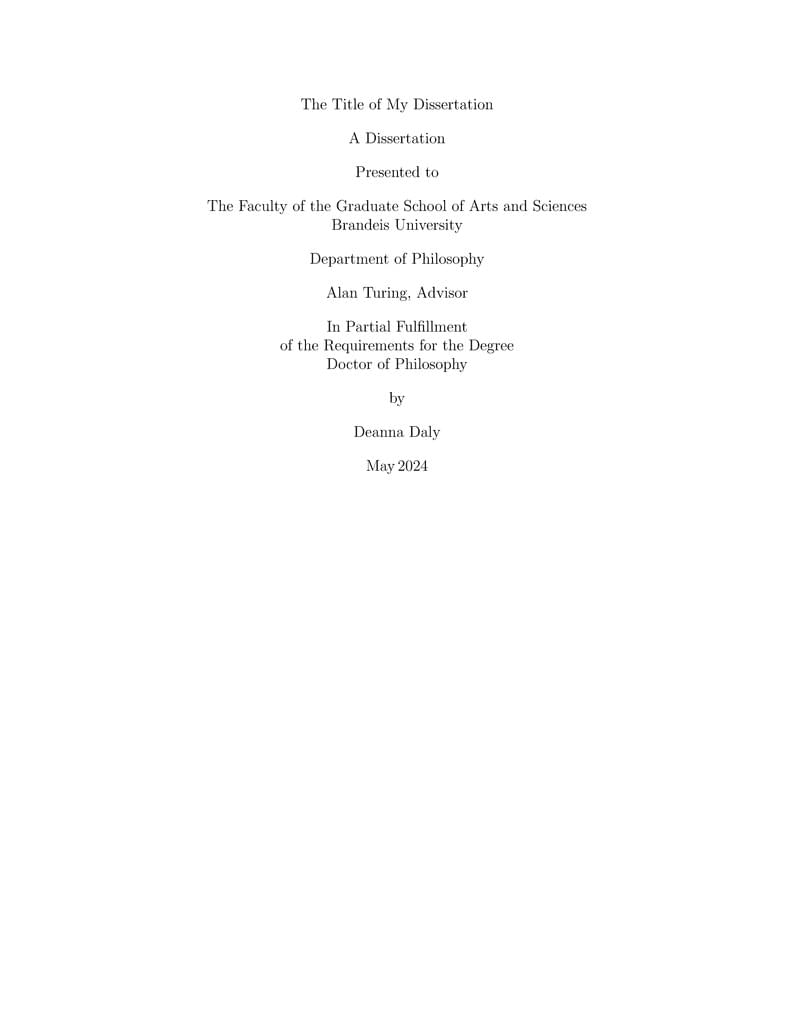
This template applies the brandeis-dissertation class that will enable the user to typeset a dissertation that adheres to the formatting guidelines of Brandeis University Graduate School of Arts and Sciences (GSAS).
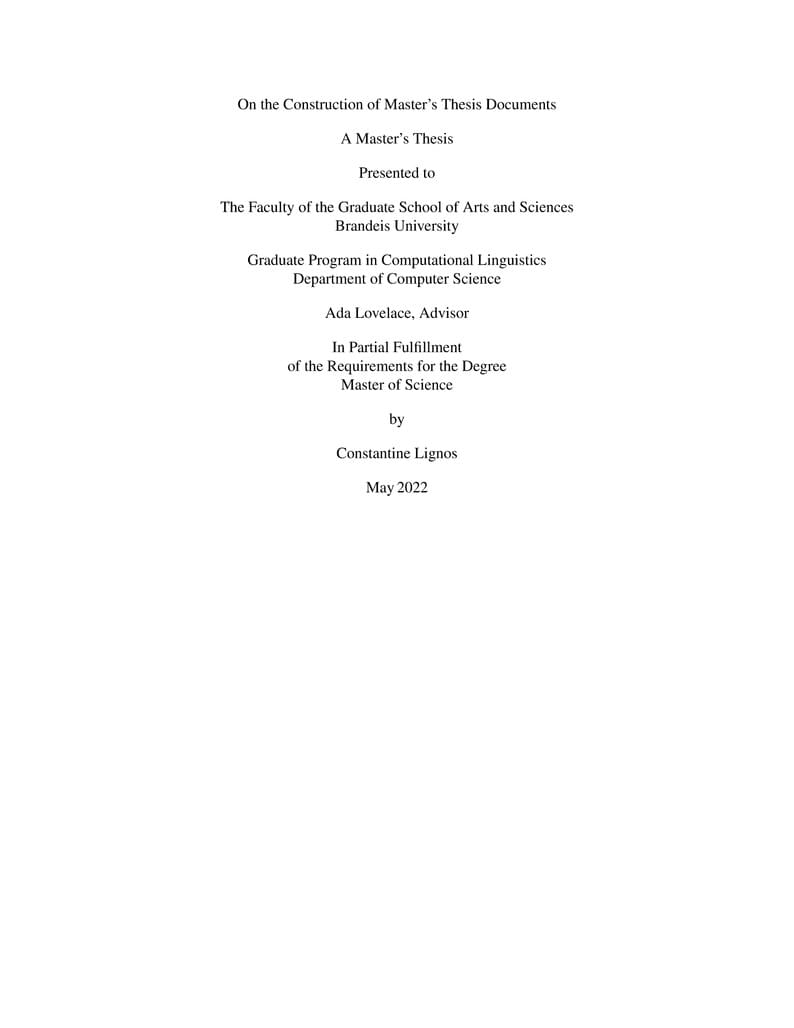
This template provides the structures and formatting information for an M.A. thesis for the Brandeis University Graduate School of Arts and Sciences.
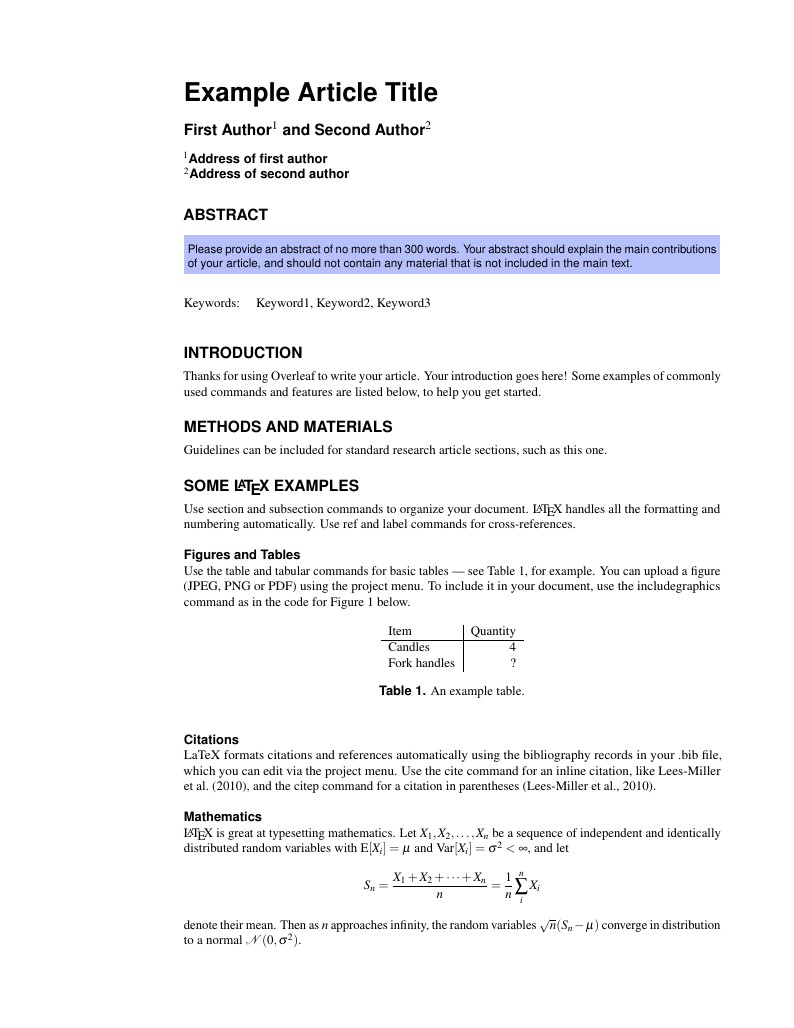
This is a basic journal article template which includes metadata fields for multiple authors, affiliations and keywords. It is also set up to use the lineno package for line numbers; these can be turned on by adding the 'lineno' option to the documentclass command.
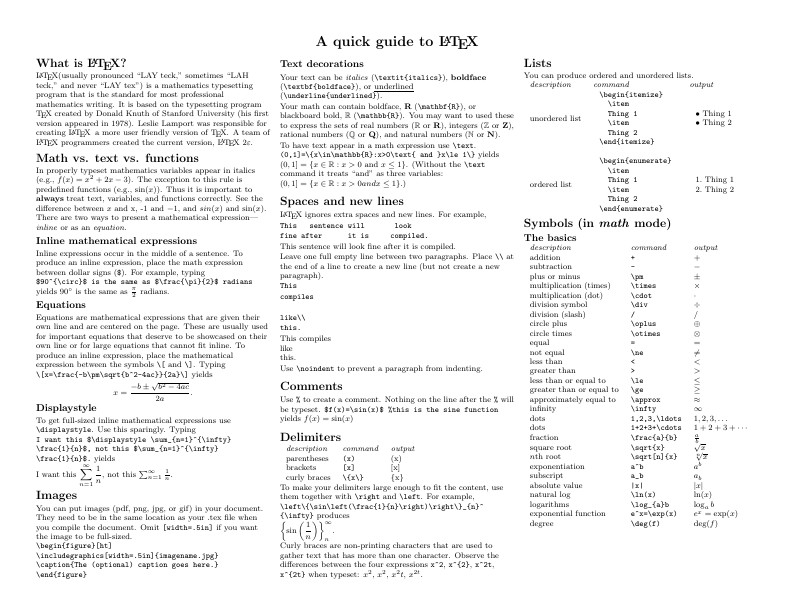
Know the LaTeX command you want to use but can't remember how to write it? Here we present a great tips sheet produced by Dave Richeson; it's pre-loaded in Overleaf so you can see how the commands work instantly. Simply click on the button above to open a version in Overleaf for editing (and to quickly copy and paste the commands you need!). For more comments visit this page on Dave's site, or if you'd like to work through a fuller introduction to LaTeX why not check out our free online course?
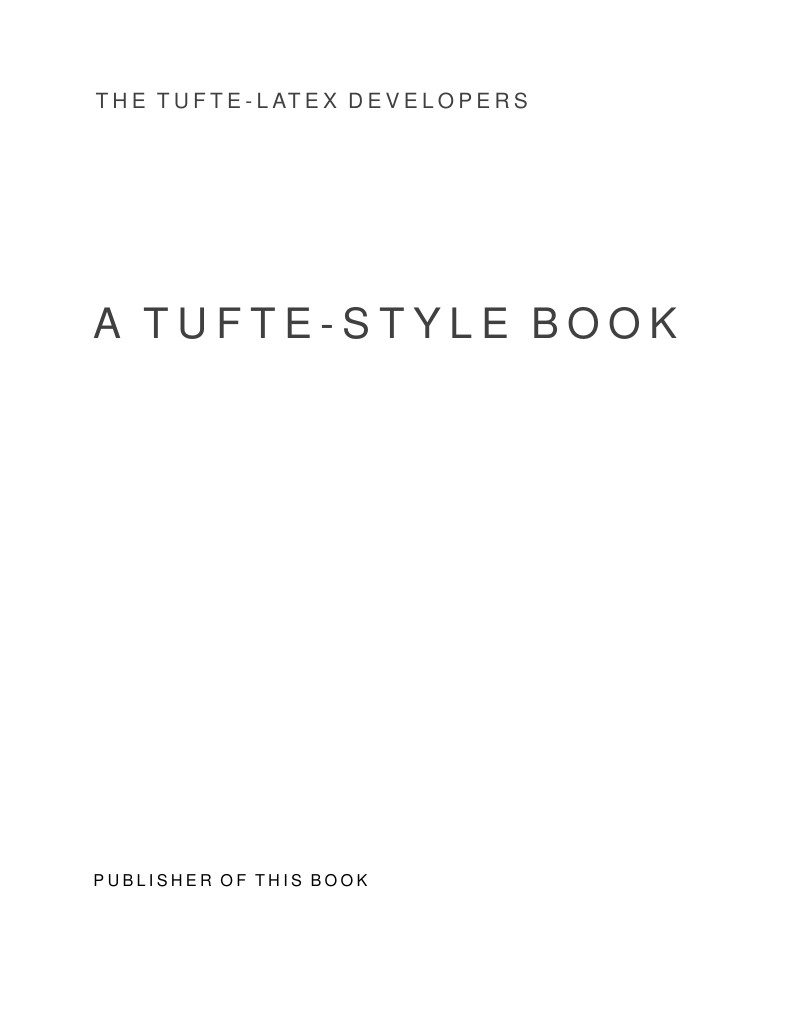
Edward Tufte is a pioneer in the field of data visualization, and his works inspired the creation of two LaTeX classes for books and handouts. Here we present the excellent sample book produced by the The Tufte-LaTeX Developers pre-loaded into Overleaf (formerly writeLaTeX) for you to use as a starting point for your own work. Simply click the button above to use Overleaf to create and edit your article - there's nothing to install and no sign up required. When you're finished, use our integrated publish to figshare option to publish your work freely online. Click here if you'd like to try the corresponding Tufte handout design on Overleaf. PS: If you're new to LaTeX, our free online LaTeX course covers all the steps you need to get you started.
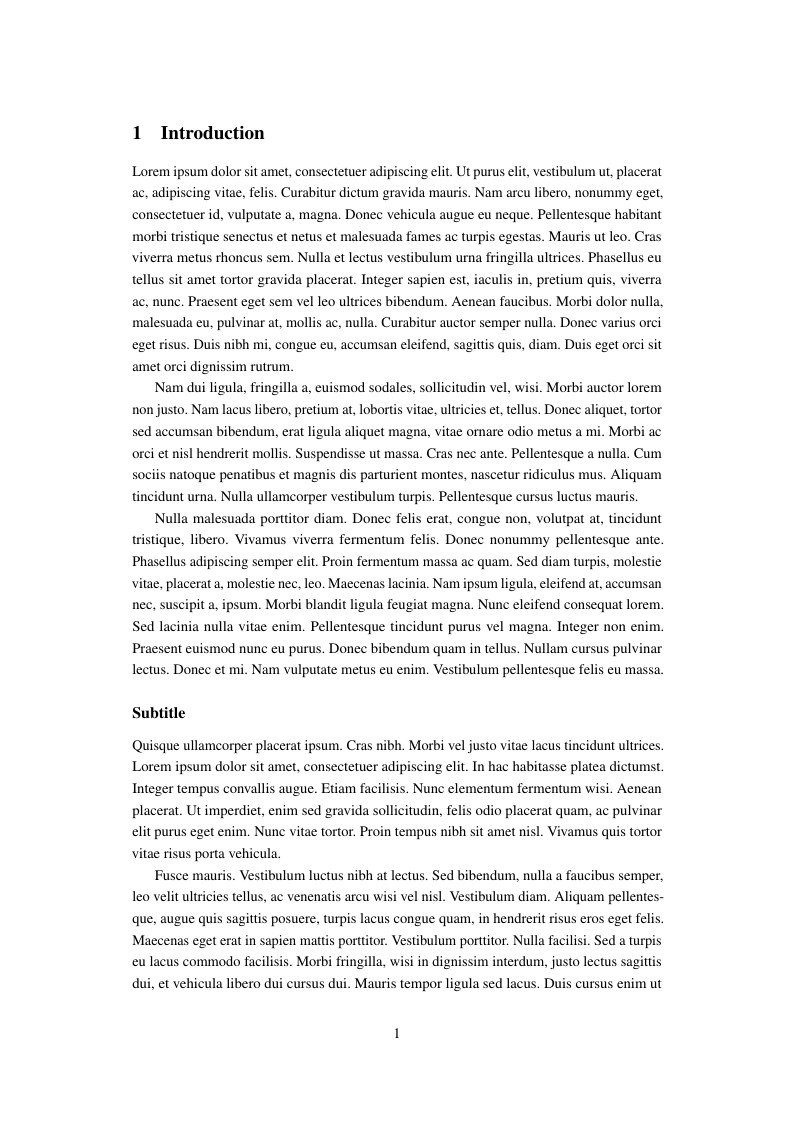
A4 document with page numbering and adjusted margins. Included options for gentium and times font, as well as language.
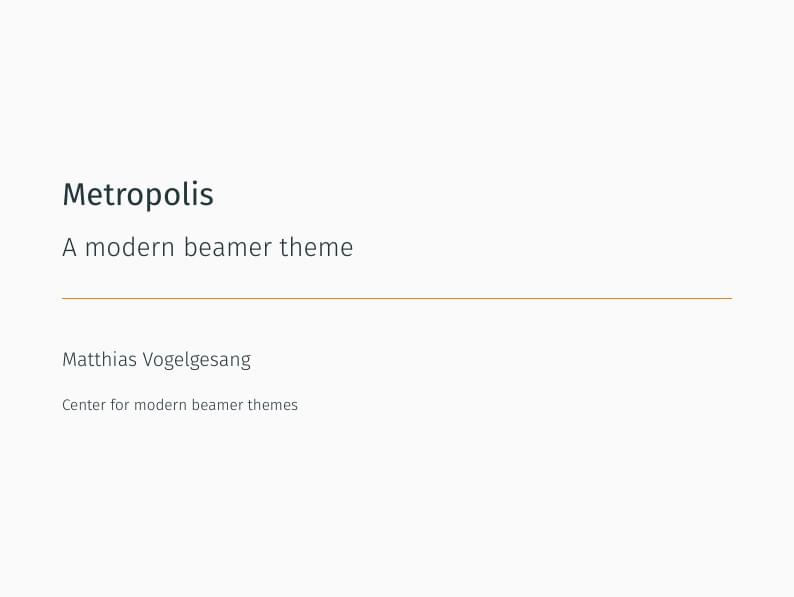
Metropolis is originally created by Matthias Vogelgesang and is available from https://github.com/matze/mtheme as well as CTAN. More information about the theme, including the design principles, can be found at http://bloerg.net/2014/09/20/a-modern-beamer-theme.html. This version demonstrates the use of a progress bar under the frame titles. See the manual for other customisation options.
FAQ & Help
Who should I contact if I have questions about Overleaf or the Brandeis license?
If you need technical support while working on any Overleaf projects, please use our contact form and we'll make sure your question gets to the right person in our team.
You can also direct specific questions and training requests to Brandeis Library Data Services at
dataservices@brandeis.edu.
How do I receive my Overleaf Professional account?
Sign up (or sign in) to link your account to your Brandeis University Single Sign On in order to receive your free Overleaf Professional account.
Please note:
- Any current Overleaf accounts (on the free plan or paid subscription) do not change. All you need to do is add your Brandeis email to your account.
- You can cancel your non Brandeis paid subscription without worrying about losing access to your account, projects or collaborations. If you have not added in your Brandeis email to your Overleaf account, your account will be placed on the free plan.
- If you want to receive a prorated reimbursement for a subscription you have already paid for, please contact support@overleaf.com. You can cancel your paid account online and it only cancels the renewal subscription.
- No data needs to be migrated when you leave or change subscriptions.
- Private LaTeX templates remain private.
This page provides more details on Overleaf accounts and subscriptions, and this page provides more details on joining an institutional subscription.
I'm new to Overleaf, how should I get started?
We've put together a short How do I use Overleaf help page to give you pointers on exactly that, or see the Brandeis Library guide LaTeX with Overleaf.
You can also check out upcoming and on-demand webinars.
How do I upload an existing LaTeX project into Overleaf?
Here's an FAQ on how to import existing LaTeX documents into Overleaf.
What packages does Overleaf support?
Overleaf supports the packages listed here.
How secure is my research data protected on Overleaf?
Faculty, instructors, researchers, staff and students have the responsibility to adhere to the guidelines outlined in the Written Information Security Policy (WISP). It is especially important to maintain the safeguarding of data that may contain personally identifiable information(PII). It is strongly recommended to minimize PII or sensitive data contained within documentation developed in Overleaf and the provides LaTeX templates. For more information about using Overleaf or LaTeX, contact dataservices@brandeis.edu. For questions about keeping your data secure, contact security@brandeis.edu.